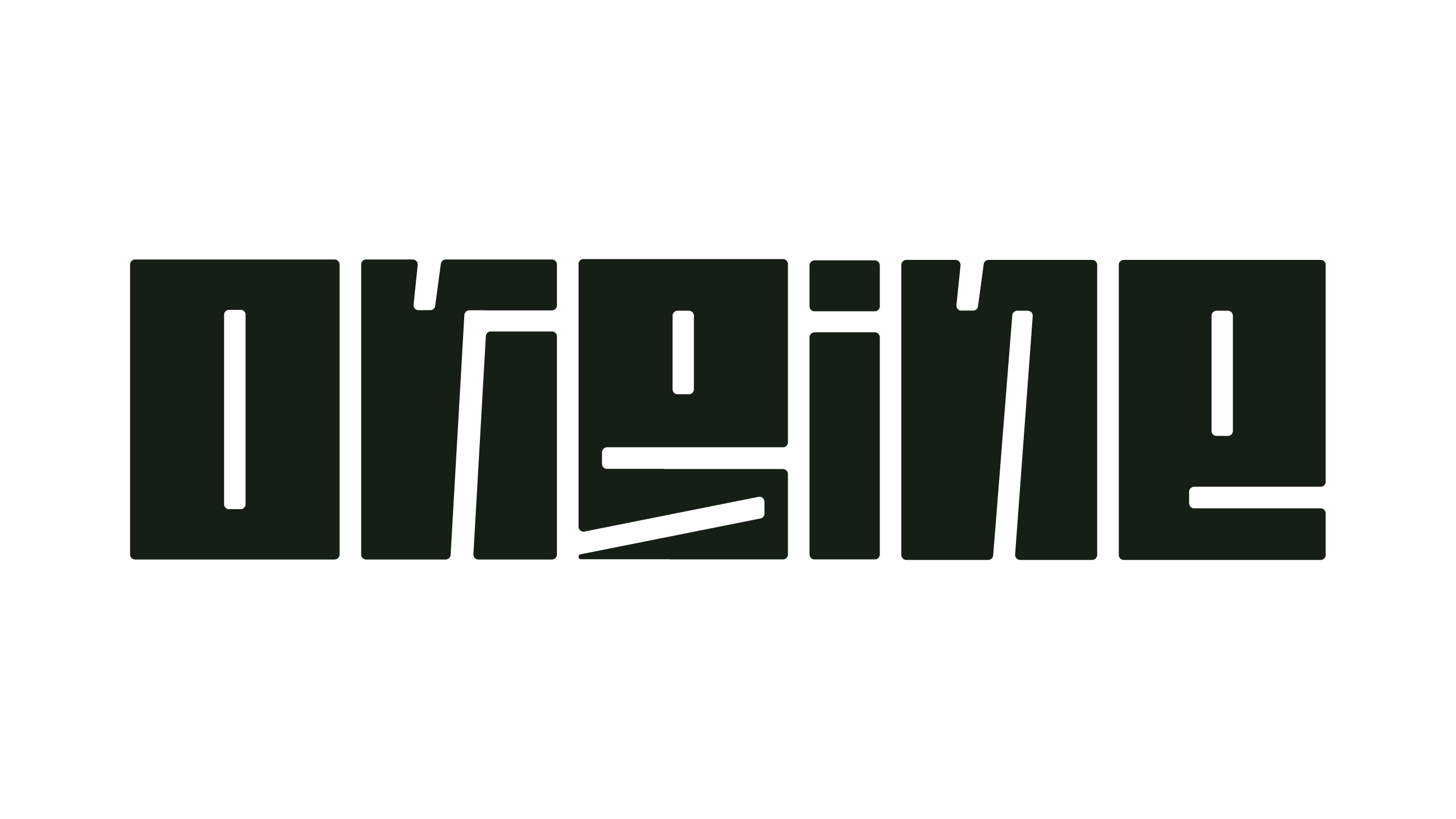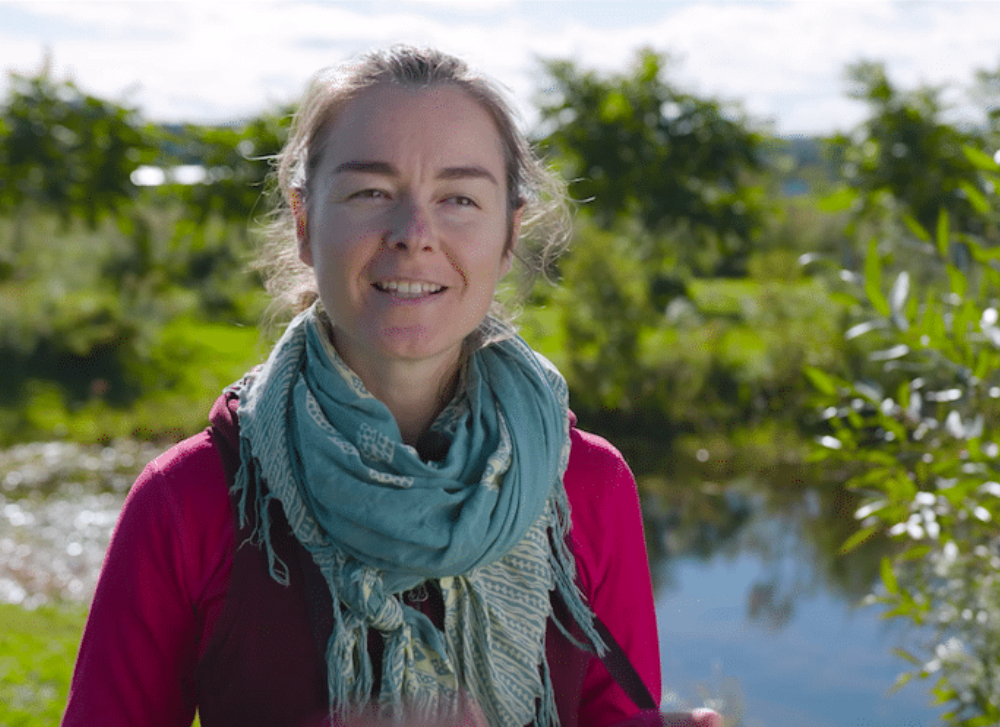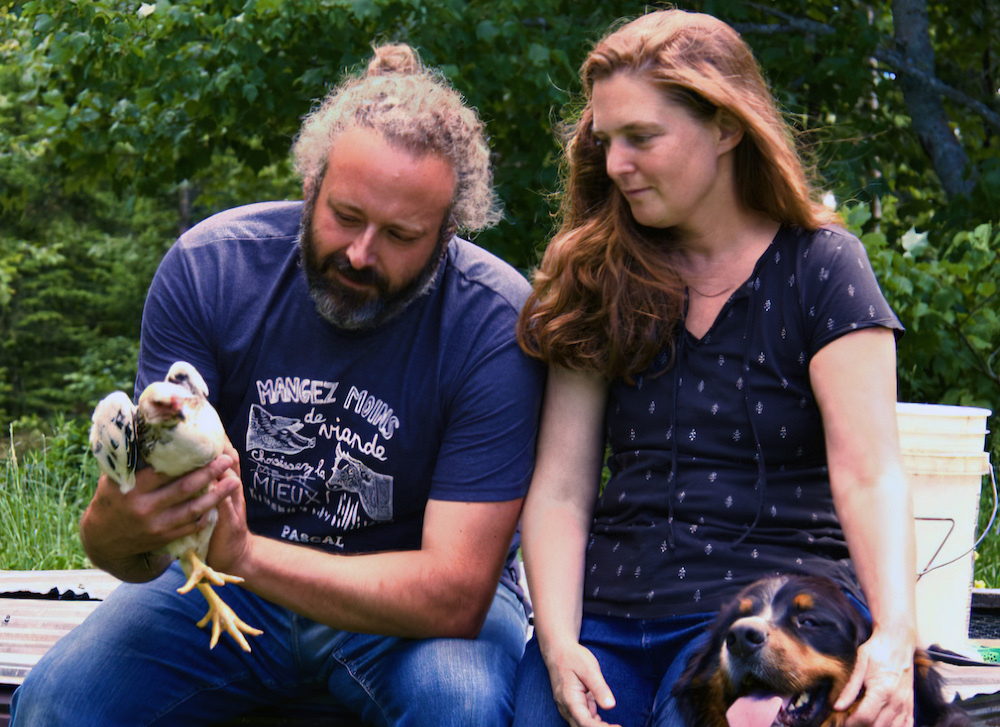The breeder who doesn't cow
The best is the enemy of good. If there is one who has never been convinced by this 18th century proverb, it is Bryan Denis. His family, rooted for five generations on Chemin Taché Ouest in Saint-Cyprien, has continued to tame the thin layer of earth outcropping on the rocky ridges of the Bas-Saint-Laurent plateaus.
Last year, on the Denijos farm, his estate as large as half of New York's Central Park and subject to 275 days of frost per year, the organic producer achieved a feat. He won first place in the country for excellence in managing his dairy cows on the Herd Performance Index. The breeder of 65 free-stall cows had been in the top three for four years. In 2019, for example, he won the National Order of Agricultural Merit . In short, you will immediately understand that Bryan is not at all a perfectionist. He's also not the type to worry about the little details. Well no, let’s see!
To be able to display their organic product certificate, Bryan and his partner Julie Dagenais devote themselves body and soul to the production of a herd without hormones or antibiotics. And since the cows must leave the fields at the age of nine months to graze happily, the couple adheres to agriculture without chemical fertilizers and without GMOs. By maintaining buffer strips with the land of other farmers who still cultivate conventional crops, he ensures that his animals have fodder that will produce exceptional milk. Soon, not only will her calves drink enough milk for at least the first three months of their existence, but they will even be able to choose which nurse cow they will quench their thirst from.
At 35, if he is very proud of his organic production, Bryan must give back to Caesar (and Cleopatra!) what is Caesar and Cleopatra's. After all, he was only 15 years old when, in 2002, Régis and Geneviève, his parents, converted to agriculture in harmony with nature. Come on! The manure was used as much as possible and the transition to the fields was completed in just six years. The avant-garde couple had juggled with the alternative methods of the time, going so far as to use homeopathy to treat cows.
For his part, Brian reassures us. It does not use remedies in infinitesimal doses. For certain infections, he instead relies on essential oils and ensures that everything is “on target” to prevent illness. And when certain specific issues arise, he consults members of the organic community. Moreover, he thanks heaven that he can also count on his team of advisors both financially and for the management of his fields and the management of the herd.
In recent years, Bas-Saint-Laurent has experienced five episodes of drought. For this reason, since 2020, all these wonderful people who work with him have focused on improving yields from pastures and fields.
“We are trying to find the right varieties and practices that would better resist lack of water. In 2017 and 2018, I had to buy hay in Mauricie and in the Saint-Jean-sur-Richelieu area. I swore to myself not to go through that again. Every fall we make sure to collect 200 surplus round bales to cover the winter and the start of the following spring. That way, I'm not in a hurry to make my first cut. With the excess, I make green manure. This allows me to add nitrogen units to my soil and not have to import manure. It pays. Over the past five years, despite episodes of drought, our yields have increased by 20%. »
After seven years spent building and renovating his farm buildings, the father of two little girls, aged one and three, wants to repay his debts while making the most of his land and cows that he has looked after so much. From their red gabled wooden house camped between the Saint-Laurent and Lake Témiscouata, Bryan and Julie are hatching plans for the future. Aware of having the potential to increase their quota by six to seven kilos, the couple juggles with the idea of improving the performance of their animals. We bet that the view of the Trois-Pistoles River valley will give them advice.




